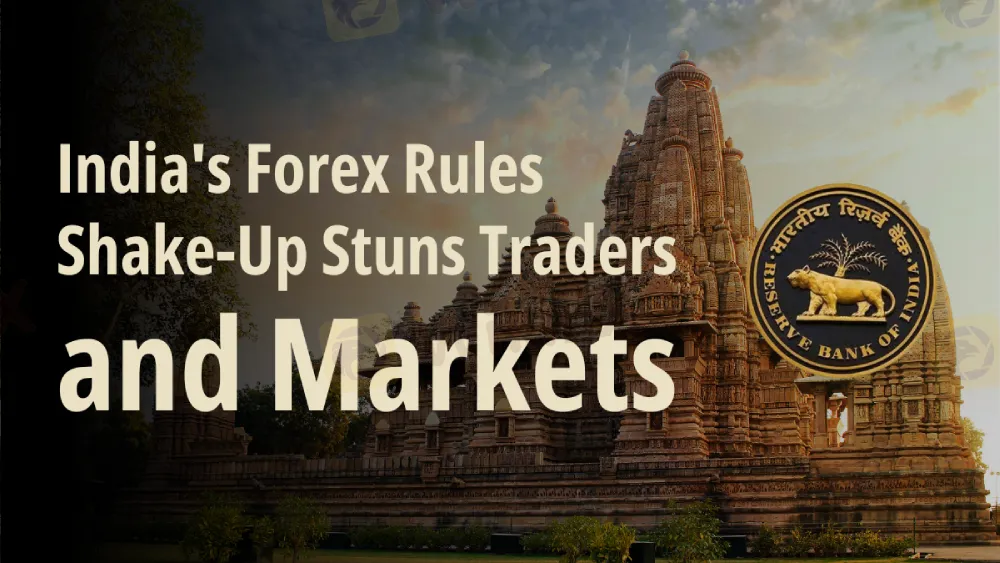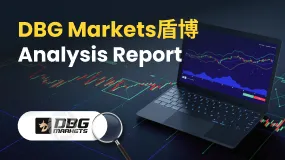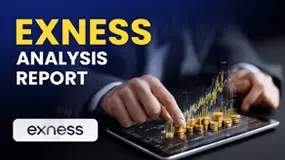Abstract:India faces scrutiny as strict forex rules blindside traders, shrink market volumes, and spotlight regulatory uncertainties. The impact raises questions about India's appeal as an investment hub.

The Reserve Bank of India (RBI) has implemented strict regulations on exchange-traded currency derivatives, a trading market that has shown significant expansion in the last decade due to the participation of both regular investors and proprietary traders. The trading community has been significantly disrupted as a result of this action. The degree of regulatory transparency and India's attractiveness as an advantageous investment destination has generated significant concern in light of the stricter regulations that have been enforced.
For years, traders had been freely speculating on the rise and fall of the rupee without necessarily having the underlying assets. They operated under a guideline permitting transactions up to $100 million without proof of actual foreign-currency exposure—a rule many interpreted as a nod to speculative trading. However, the market saw significant disruption in late March when the Reserve Bank of India (RBI) provided clarification on this regulation, explicitly noting that its aim was purely for hedging.
On April 1, only days before the deadline, the exchanges upheld the RBI's January circular, catching numerous traders off surprise with unhedged holdings.

This clarification led to a drastic contraction in market activity. As of the end of March, open interest in rupee currency futures had halved, while option premiums in some contracts had soared by over 200%, revealing a market caught off-guard. The confusion was heightened when the RBI delayed the rule's effect until May 3, prompting many to question the timing and logic of the unexpected regulatory move.
“The market was not prepared for such a stringent enforcement of what many believed was a flexible rule,” said Smrithi Nair, a partner at Juris Corp. “This confusion not only impacts traders but also casts a shadow over India as a reliable jurisdiction for international investors.”
On April 5, RBI Deputy Governor Michael Patra issued a stern warning, accusing some market participants of “misusing” the leniency in the rules to engage in unhedged trading. This announcement was unexpected by many, including experienced traders such as Ashish Barua, who expressed their disappointment, stating, “It is a surprising decision considering the country's economy is the fifth largest and the currency volatility is effectively controlled.”
Despite the central bank's attempts to stabilize the currency market using its substantial forex reserves, the sudden enforcement has caused considerable fallout. Many traders, like Barua, have been forced to exit their positions at a loss, with some considering shifting to equity and commodity derivatives instead.
The market regulator and the RBI have long worked together to regulate currency derivatives, but the gap between the market's understanding of the legislation and the central authority's declarations raises concerns about communication effectiveness. Ashish Kumar Chauhan, CEO of the National Stock Currency, spoke with Bloomberg Television on the complexity of Indian foreign currency management and the sheer amount of circulars that market players are obliged to obey.
The aftermath of these regulatory changes is likely to extend beyond immediate market reactions. With volumes dwindling, genuine hedgers may find fewer counterparties, potentially pushing them towards more expensive over-the-counter markets. This could undermine the very purpose of exchange-traded derivatives, which is to offer a transparent, accessible, and less costly environment for managing currency risks.
Narinder Wadhwa of SKI Capital, who is heavily involved in industry communications with the RBI, emphasized the necessity of a diverse market. “A healthy market ecosystem includes arbitrageurs, speculators, and hedgers. Each plays a crucial role in ensuring liquidity and creating a robust environment for all participants.”
As the dust settles, the trading community and regulators are left to navigate a new landscape. The stringent enforcement of these rules could redefine the structure and function of India's currency derivative markets, but it also serves as a reminder of the delicate balance between regulation and market freedom. The challenge for India will be to align these regulations without stifling the innovation and activity that have characterized its financial markets thus far.












